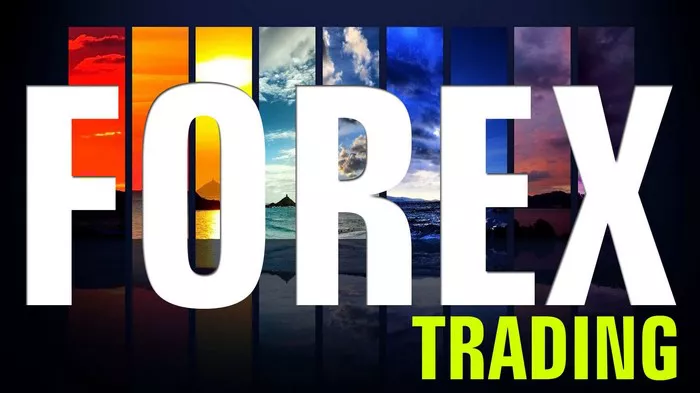The United States dollar (USD) is widely regarded as the world’s primary reserve currency. For decades, it has played a central role in international trade, finance, and investment. Central banks, governments, and financial institutions around the world hold significant amounts of USD in their foreign exchange reserves. But why is the USD used as the dominant reserve currency? In this article, we will explore the history, factors, and benefits that have contributed to the USD’s role as the world’s primary reserve currency.
The Role of a Reserve Currency
Before delving into why the USD is the world’s primary reserve currency, it is important to understand the concept of a reserve currency. A reserve currency is a foreign currency held by central banks and major financial institutions as part of their foreign exchange reserves. These reserves are used to settle international transactions, stabilize national currencies, and support economic policies.
A reserve currency must have certain characteristics to be widely accepted. It should be stable, liquid, and easily accessible. Additionally, it should be trusted by global markets, which requires a robust and transparent financial system. The USD has consistently met these criteria, making it the currency of choice for reserve holdings worldwide.
The Historical Background of the USD as a Reserve Currency
The USD’s dominance as the world’s primary reserve currency did not happen overnight. It evolved over centuries of economic development, particularly after World War II.
a) The Bretton Woods Agreement (1944)
The USD’s status as a major reserve currency can be traced back to the Bretton Woods Conference in 1944. Following the devastation of World War II, Allied nations convened in Bretton Woods, New Hampshire, to create a new international monetary system. At the conference, the USD was chosen as the anchor currency for the global monetary system.
Under the Bretton Woods Agreement, the value of the USD was pegged to gold at a rate of $35 per ounce. Other currencies were then pegged to the USD, creating a system of fixed exchange rates. This arrangement lasted until 1971 when the United States abandoned the gold standard, but by that time, the USD had already solidified its position as the primary reserve currency.
b) The Role of the USD in Post-War Reconstruction
After World War II, the United States emerged as the world’s largest and most powerful economy. The U.S. had a significant role in post-war reconstruction, particularly through initiatives like the Marshall Plan, which provided aid to war-torn European nations. As the global economy recovered, the USD became the currency of choice for trade and investment.
The strength of the U.S. economy, coupled with its position as a major financial center, made the USD the preferred currency for international transactions. As countries rebuilt their economies, they needed a stable and reliable currency to facilitate trade and investment, and the USD provided that stability.
Factors Contributing to the USD’s Dominance
Several factors have contributed to the USD’s continued dominance as the world’s primary reserve currency. These factors are a combination of economic, political, and historical elements that have reinforced the USD’s role on the global stage.
a) The Size and Stability of the U.S. Economy
One of the primary reasons the USD is used as a major reserve currency is the sheer size and stability of the U.S. economy. The U.S. is the world’s largest economy, accounting for roughly a quarter of global GDP. The strength and size of the U.S. economy make the USD a safe and attractive currency for foreign exchange reserves.
b) The U.S. Dollar’s Liquidity
Liquidity refers to how easily an asset can be bought or sold without affecting its price. The USD is highly liquid because it is widely traded in global financial markets. Investors, governments, and institutions can easily convert USD into other currencies or assets, making it an ideal choice for holding foreign exchange reserves. The deep liquidity of the USD ensures that it is readily available for global trade and investment.
c) The Role of U.S. Financial Markets
The U.S. financial markets, particularly the bond and equity markets, are the largest and most liquid in the world. The U.S. Treasury bond market is considered one of the safest and most reliable investment vehicles, attracting foreign governments and institutions to hold USD reserves. The depth and security of U.S. financial markets make them an attractive destination for global capital, reinforcing the demand for USD.
d) Trust in U.S. Institutions
The U.S. has a long history of stable governance, transparent legal systems, and strong financial institutions. The Federal Reserve, the U.S. central bank, is considered one of the most trusted institutions in the world. Its role in managing monetary policy and ensuring financial stability adds to the credibility of the USD. Global investors and central banks trust the U.S. dollar because they trust the U.S. institutions that manage it.
e) The Dollar’s Use in Global Trade
The USD is the dominant currency used in international trade, particularly for commodities like oil, gold, and other raw materials. Most commodities are priced in USD, and many countries settle their trade transactions using USD. This widespread use of the USD in global trade further cements its status as the primary reserve currency.
f) The Role of the U.S. Dollar in the Oil Market (Petrodollar System)
One of the key factors that have reinforced the USD’s role as a reserve currency is its use in the global oil market. Since the 1970s, most oil transactions have been conducted in USD, a system known as the “petrodollar” system. This arrangement was largely the result of an agreement between the U.S. and major oil-producing nations, particularly Saudi Arabia, to price oil in USD.
As a result, countries that import oil are required to hold USD in order to pay for their oil imports. This has created a constant demand for USD, as oil is one of the most essential commodities traded globally. The petrodollar system has ensured that the USD remains at the center of global trade and finance.
g) The Dollar’s Role in Global Investment
The USD is also the dominant currency for global investment. U.S. companies and financial institutions are major players in the global market, and many foreign governments and institutions choose to invest in U.S. assets, such as Treasury bonds, stocks, and real estate. This investment activity creates further demand for USD, as foreign entities need to purchase dollars in order to invest in U.S. assets.
h) U.S. Military and Political Power
The geopolitical influence of the United States also plays a role in the USD’s status as a reserve currency. The U.S. has the world’s most powerful military and plays a significant role in global political and economic affairs. This power and influence provide a level of security for the USD, as countries are more likely to hold USD reserves due to the stability and geopolitical dominance of the U.S.
The Benefits of Holding USD Reserves
For countries and central banks, holding USD as part of their foreign exchange reserves offers several benefits. These include stability, liquidity, and security.
a) Stability and Confidence
Holding USD as a reserve currency provides countries with a sense of financial stability. The USD is seen as a safe haven in times of global economic uncertainty or financial crises. For example, during the 2008 financial crisis, many countries turned to the USD as a stable asset to hold in their reserves, as it was considered less risky compared to other currencies.
b) Trade and Investment Opportunities
Countries that hold significant amounts of USD in reserves have greater flexibility when it comes to international trade and investment. The availability of USD enables countries to settle trade transactions more efficiently and invest in global markets. Moreover, USD reserves provide countries with the ability to respond to external shocks and economic crises.
c) Ability to Borrow at Low Cost
Countries with large foreign exchange reserves, particularly in USD, can borrow at lower interest rates on the international market. A large reserve of USD provides reassurance to lenders that the country can meet its debt obligations. This lowers the cost of borrowing and enhances the country’s financial credibility in global markets.
Challenges to the USD’s Dominance
While the USD has enjoyed unparalleled dominance as a reserve currency, there are challenges to its continued supremacy.
a) Rising Competition from Other Currencies
In recent years, there has been increasing competition from other currencies, particularly the euro and the Chinese yuan (CNY). The European Union has made efforts to promote the euro as an alternative to the USD, while China has been pushing for greater use of the yuan in global trade and finance. Despite these efforts, the USD remains the dominant currency, but the rise of these alternative currencies presents a long-term challenge.
b) Potential for De-Dollarization
Some countries, particularly those with strained relations with the U.S., have started to explore alternatives to the USD for their reserves. This process, known as “de-dollarization,” could reduce the USD’s role in global trade and finance. For example, Russia and China have made moves to increase their gold reserves and trade with each other in their own currencies.
c) Shifting Global Dynamics
As the global economy shifts and emerging markets grow in importance, the dominance of the USD may be tested. Countries like China and India are increasing their economic influence, and if these countries begin to move away from the USD, it could weaken its position as the world’s primary reserve currency.
Conclusion
The USD’s role as the world’s primary reserve currency is the result of a combination of historical, economic, and political factors. Its stability, liquidity, and widespread use in global trade and finance have made it the preferred choice for central banks and financial institutions. While challenges to the USD’s dominance exist, including rising competition from other currencies and efforts at de-dollarization, the USD remains a key player in the global financial system. As the world economy evolves, the future of the USD as the primary reserve currency will continue to be shaped by economic, geopolitical, and technological developments.
Related topics:


































